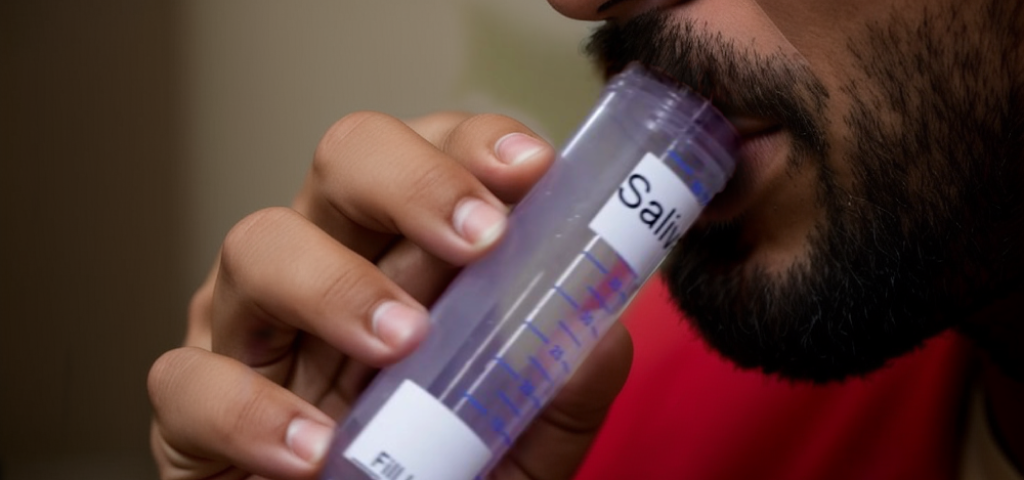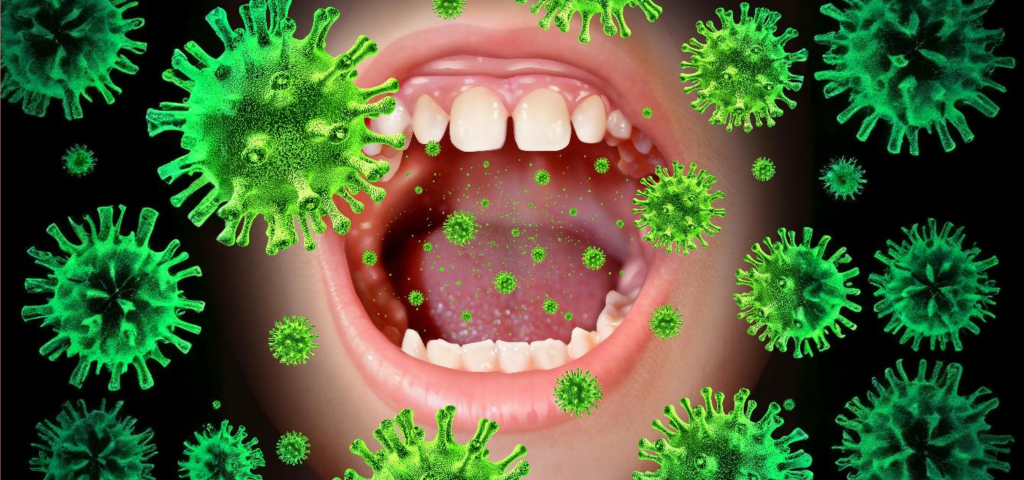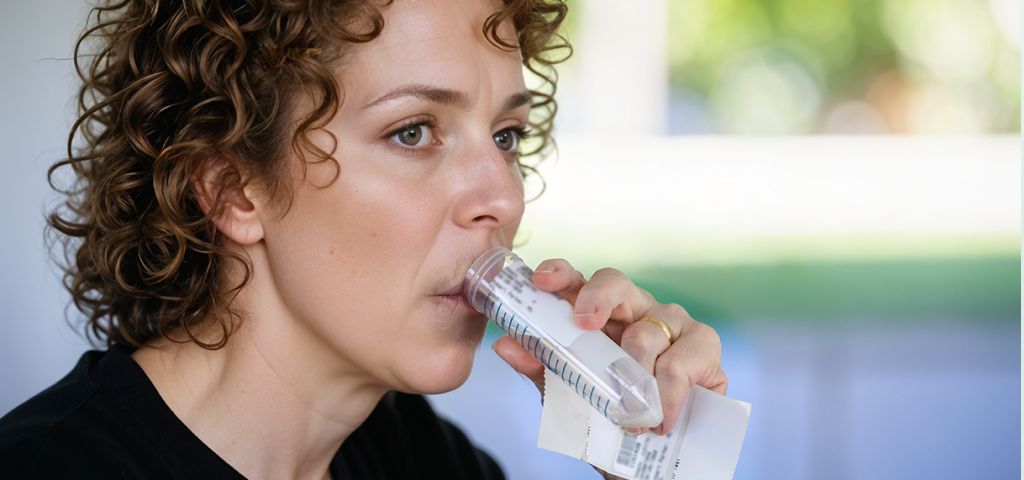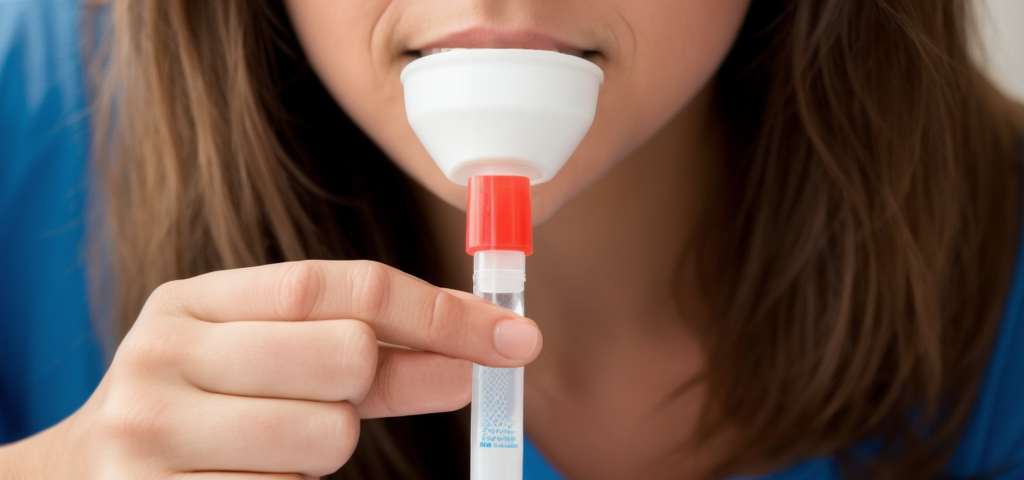A Promising Tool for Identifying Risk Factors of Tooth Decay
Are you at risk of tooth decay? Salivary testing may hold the answer. By analyzing the composition of your saliva, this non-invasive procedure can identify key markers associated with oral health, providing crucial insight into your risk factors for tooth decay. Discover how this cutting-edge technology can help you take control of your oral health in this informative blog post.
Learn about the role of salivary testing in identifying risk factors for tooth decay. Discover how analyzing the composition of saliva can provide insight into oral health markers such as pH levels, bacteria, enzymes, and proteins. Find out how this non-invasive procedure can help prevent and manage tooth decay with personalized treatment plans.
Body:
Tooth decay is a common problem that affects people of all ages. It occurs when bacteria in the mouth produce acid that erodes the enamel on the teeth, leading to cavities and other problems. Identifying risk factors for tooth decay is crucial for preventing and managing this condition. One promising tool for identifying risk factors is salivary testing.
Salivary testing involves analyzing the composition of saliva to identify markers of oral health. Saliva is a complex mixture of fluids, electrolytes, and proteins that is produced by glands in the mouth. It plays a critical role in maintaining oral health by neutralizing acid, lubricating the mouth, and providing a host of antimicrobial compounds that help to protect the teeth and gums.
One of the key markers of oral health that can be identified through salivary testing is the pH of the saliva. A healthy saliva pH should be neutral or slightly alkaline, around 7.4. If the pH is too low, it can indicate that the mouth is too acidic, which can lead to tooth decay. Salivary testing can also identify the presence of specific bacteria that are known to be associated with tooth decay, such as Streptococcus mutants.
Another important marker that can be identified through salivary testing is the presence of enzymes that are involved in the breakdown of sugars and starches in the diet. These enzymes can help to identify individuals who are at risk of tooth decay due to a high sugar diet or poor oral hygiene.
Salivary testing can also identify the presence of specific proteins that are known to be associated with tooth decay. These proteins can help to identify individuals who are at risk of tooth decay due to genetic factors or other underlying conditions.
Salivary testing is a simple and non-invasive procedure that can be performed in a dental office or at home with a kit. The samples collected from the test can be analyzed in a laboratory to identify markers of oral health. This information can then be used to develop a personalized treatment plan that addresses the specific risk factors for tooth decay.
In conclusion, salivary testing is a valuable tool for identifying risk factors for tooth decay. By analyzing the composition of saliva, it can identify markers such as pH levels, specific bacteria and enzymes, and proteins that are associated with tooth decay. This information can be used to develop a personalized treatment plan that addresses the specific risk factors for tooth decay, which can help to prevent and manage this condition.
Dentulu’s Salivary at-home salivary testing kits
Dentulu offers an innovative solution for salivary testing with their at-home salivary testing kits. These kits allow individuals to easily collect their own saliva samples at home and send them to a lab for analysis. This eliminates the need for a visit to the dental office and allows for convenient testing at any time.
Dentulu’s salivary testing kits are easy to use, and provide accurate and reliable results that can be used to identify risk factors for tooth decay. The results are then reviewed by Dentulu’s team of dental professionals who will provide a personalized treatment plan based on the individual’s unique oral health needs.
These at-home salivary testing kits can be purchased by both patients and professionals through Dentulu. This makes it easy for individuals to take control of their oral health and for dental professionals to provide their patients with valuable information to support their treatment. Additionally, Dentulu’s salivary testing kits are an affordable option compared to traditional in-office salivary testing methods.
In summary, Dentulu’s at-home salivary testing kits are a convenient and cost-effective solution for identifying risk factors for tooth decay. They provide accurate results that can be used to develop personalized treatment plans and support oral health. These kits can be purchased by both patients and dental professionals, making it easy for everyone to take control of their oral health.
Summary:
The blog post discusses the role of salivary testing in identifying risk factors for tooth decay. Salivary testing is a non-invasive procedure that involves analyzing the composition of saliva to identify markers of oral health such as pH levels, specific bacteria, enzymes, and proteins. These markers can provide insight into an individual’s risk factors for tooth decay and can be used to develop a personalized treatment plan to prevent and manage the condition. The post also mentioned Dentulu’s at-home salivary testing kits as a convenient and cost-effective solution for identifying risk factors for tooth decay that can be purchased by both patients and dental professionals. The results of the kits are reviewed by dental professionals who will provide a personalized treatment plan based on the individual’s unique oral health needs. The article also includes 2 pictures, one showing Dentulu’s at-home salivary testing kit and the other illustrating the process of salivary testing.
References:
“Saliva as a diagnostic tool for oral and systemic diseases” by Mohammad A. Javaid,a Ahad S. Ahmed,b Robert Durand,c and Simon D. Trand,. Early disease detection is not only vital to reduce disease severity and prevent complications, but also critical to increase success rate of therapy. Saliva has been studied extensively as a potential diagnostic tool over the last decade due to its ease and non-invasive accessibility along with its abundance of biomarkers, such as genetic material and proteins.
https://www.ncbi.nlm.nih.gov/pmc/articles/PMC4756071/
“Diagnostic Applications of Saliva in Dentistry” by Prabhakar AR,1 Akanksha Gulati,2 Deepak Mehta,3 and S Sugandhan4. The use of saliva to identify individuals with disease and to follow the progress of the affected individual has attracted the attention of numerous investigators. Its noninvasive method of collection, simplicity, and cost effectiveness make it a useful tool not only to the general practitioner but also to the pediatric dentist.
https://www.ncbi.nlm.nih.gov/pmc/articles/PMC4086572/
“Saliva: A Cutting Edge in Diagnostic Procedures” by Senthamil Sindhu1and Nithya Jagannathan Department of Oral Pathology, Saveetha Dental College, Saveetha University, No. 162 Poonamalle High Road, Velapanchavadi, Chennai 600077, India.
The ability to monitor the health and disease status of the patient through saliva is a highly desirable goal for the health professionals. Considering the micro concentration of salivary constituents, saliva is explored to be diagnostic tool as it also meets the demands for an inexpensive, noninvasive and easy to use screening method.
https://onlinelibrary.wiley.com/doi/10.1155/2014/168584
“Saliva in the diagnosis of diseases” by Chen-Zi Zhang, Xing-Qun Cheng, Ji-Yao Li, Ping Zhang, Ping Yi, Xin Xu & Xue-Dong Zhou. Saliva is secreted from the salivary glands and has multiple functions, including mouth cleaning and protection, antibacterial effects and digestion. With the rapid advancement in salivaomics, saliva is well recognized as a pool of biological markers. Saliva, as a non-invasive and safe source, could be a substitute for blood in the diagnosis and prognosis of diseases.https://www.nature.com/articles/ijos201638
“Saliva as a diagnostic tool for periodontal disease: current state and future directions” William V. Giannobile, Thomas Beikler, Janet S. Kinney, Christoph A. Ramseier, Thiago Morelli, and David T. Wong. In periodontics and implant dentistry, traditional clinical criteria are often insufficient for determining sites of active disease, for monitoring quantitatively the response to therapy or for measuring the degree of susceptibility to future disease progression.
https://www.ncbi.nlm.nih.gov/pmc/articles/PMC5695225/#:~:text=Saliva%20as%20a%20mirror%20of,could%20have%20diagnostic%20value%20by
“Saliva: A diagnostic biomarker of periodontal diseases” by Priti Basgauda Patil and Basgauda Ramesh Patil
Early detection of disease plays a crucial role in successful therapy. Early diagnosis and management reduces the severity and possible complications of the disease process. To overcome this challenge, medical researchers are devoted to finding molecular disease biomarkers that reveal a hidden lethal threat before the disease becomes complicated.
https://www.ncbi.nlm.nih.gov/pmc/articles/PMC3283925/
Frequently asked questions:
What is salivary testing and how does it work?
Salivary testing is a non-invasive procedure that involves analyzing the composition of saliva to identify markers of oral health such as pH levels, specific bacteria, enzymes, and proteins. These markers can provide insight into an individual’s risk factors for tooth decay and can be used to develop a personalized treatment plan to prevent and manage the condition.
How can salivary testing identify risk factors for tooth decay?
Salivary testing can identify markers in saliva that are associated with tooth decay, such as a low pH level, high levels of bacteria, and certain enzymes or proteins. These markers can indicate an increased risk of tooth decay and can be used to develop a personalized treatment plan to prevent and manage the condition.
What are some examples of markers that can be identified through salivary testing?
Examples of markers that can be identified through salivary testing include pH levels, specific bacteria, enzymes, and proteins. The presence or absence of these markers can provide insight into an individual’s risk factors for tooth decay and can be used to develop a personalized treatment plan.
How is Dentulu’s at-home salivary testing kits different from traditional in-office salivary testing methods?
Dentulu’s at-home salivary testing kits are a convenient and cost-effective solution for identifying risk factors for tooth decay. They allow individuals to easily collect their own saliva samples at home and send them to a lab for analysis. This eliminates the need for a visit to the dental office and allows for convenient testing at any time.
Are Dentulu’s salivary testing kits only for patients or can professionals also purchase them?
Dentulu’s salivary testing kits can be purchased by both patients and dental professionals. This makes it easy for individuals to take control of their oral health and for dental professionals to provide their patients with valuable information to support their treatment.






